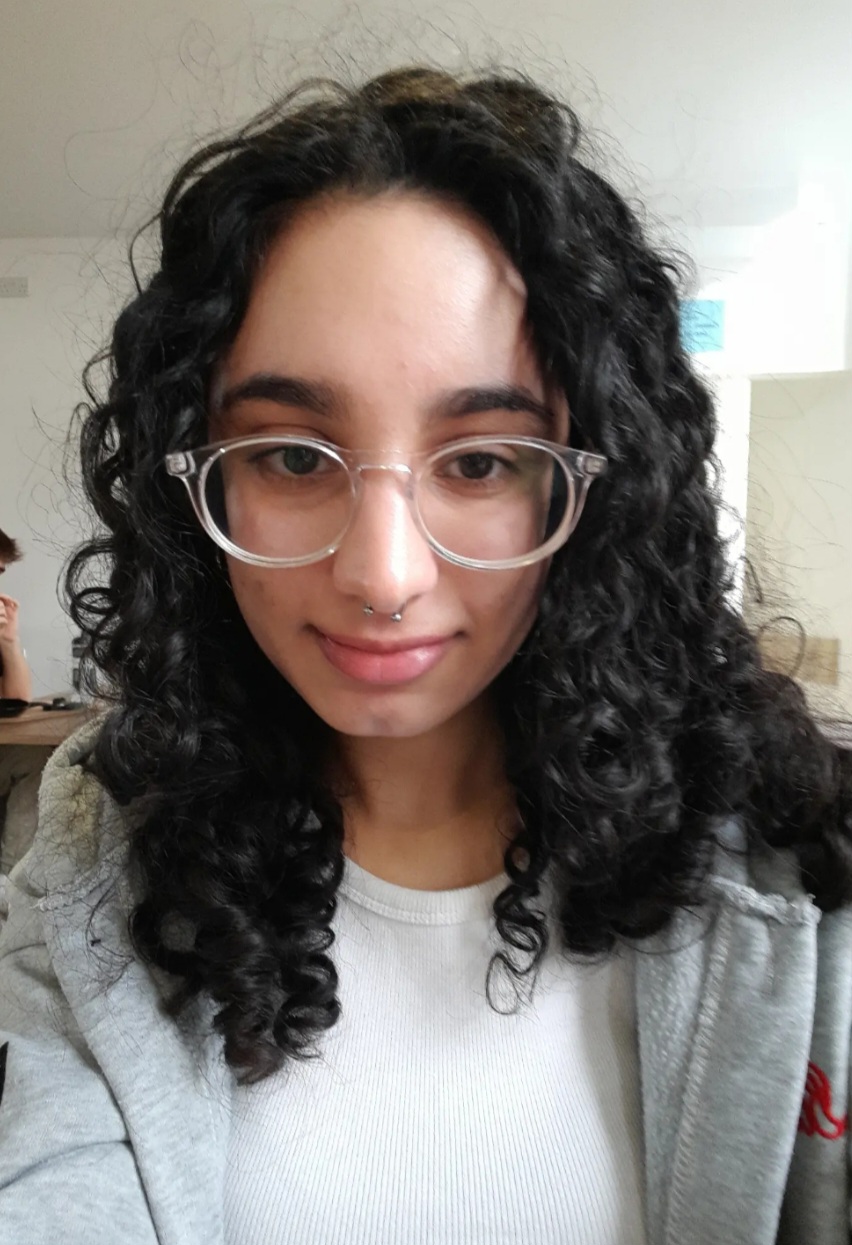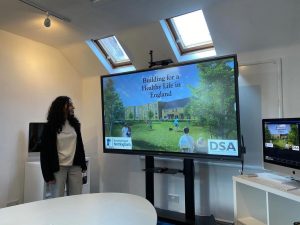
September 30, 2024, by Joe
Gurdeep Kaur – DSA – Environment + Design
Developing Professional Communication and Reflection Skills
In terms of professional communication and reflection skills, the placement has allowed me to develop these by preparation for and delivering a presentation to those that work in the office. During my time at DSA – Environment + Design, I had been working on compiling a dataset relating to councils that use Building for a Healthy Life urban design guidance. This was done by locating local plans and core strategies relating to urban design on each of the 264 Local Planning Authorities (LPAs) websites in England.
Before beginning the project, I was made aware that I would be expected to present my findings to those that I worked with in the office. Due to this, I knew that I needed compile findings in a way that would be coherent. Creating the PowerPoint presentation required reflection skills to bring together my findings and reach supported conclusions. This required decision-based reflection, to decide which parts of the data would be included when calculating overall percentages and simple statistics to show proportional values. For instance, I needed to decide whether I was to include the values of London LPAs.
This was evidenced by what was found from researching each of the councils in England. David Singleton, the Director of DSA, was very informative in teaching more intuitive ways of engaging audiences while presenting. Through his recommended resources, a better way of formatting presentations became clear and I adapted my presentation based on this as it was an improvement. An example of this is by using contrast (highlighting) to cause an audience to look on the exact part of the slide you would want them to.
Enhancing Digital Capabilities with Excel and QGIS
Digital capabilities proved to be a very important skill to develop when carrying out my assigned project at DSA. Due to the work involving a large dataset, Excel was used to record this data in an organised manner. Excel was also used to create master sheets, which were needed to help map the data. I believe that this extensive use of Excel allowed me to become more familiar and efficient with navigating the programme. QGIS was used significantly to create maps that visually showed which areas of England were or were not using the specified guidance. This related to colour-coding LPAs based on the criteria to help identify spatial patterns. QGIS was a new software which I had not used before, which allowed me to challenge myself in learning new capabilities. Prior to the placement, I was only familiar with ArcGIS Pro and ArcGIS Online.

Due to an office environment being unfamiliar to me, I learned how to conduct myself within such an unknown space. This felt like an important part of the experience, as I wished to challenge myself to adapt to unfamiliar working conditions.
Overall, I enjoyed my experience working at DSA, and find that my time there allowed me to experience a potential avenue for the future. I also am grateful for the insight into the professional world that the company operates in.
The Widening Participation Scheme, Eligibility and Benefits of the Scheme
When applying for a placement with the Widening Participation scheme, a bursary is awarded based on living wage working full-time for three weeks. The process to apply for this funding was very straightforward. Upon securing a placement, someone from the placement team sends an email with some basic forms to fill in, as well as instructions on how to set up a direct debit with the University via NottinghamHub. Through this, the bursary is paid to the account added. This process takes approximately 10 minutes to complete and ensures you earn the money that you are supposed to.
With regards to this, considering whether I was eligible for applying to Widening Participation placement roles was important as you may only apply if you qualify as part of the criteria. This made me feel that any disadvantages I may have when applying for a role regularly are being recognised and opportunities like this allow me to overcome them.
There were many benefits to this placement being full-time and outside of term time. I was allowed the flexibility of starting my placement at the end of June until mid-July. This allowed for me to focus solely on the placement, without any academic pressure from my course. I also enjoyed experiencing what a full-time role is like, as I look into the future.
No comments yet, fill out a comment to be the first

Leave a Reply